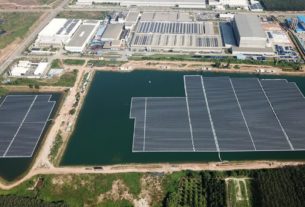The Energy Ministry’s landbridge feasibility study will primarily focus on the viability of a new oil pipeline from the Andaman Coast to the Gulf of Thailand, said Energy Policy and Planning Office EPPO Director-General Suthep Liumsirijarern.
He said that between the two connecting spots which could not yet be revealed, oil depots would be built.
He said that newly-appointed Energy Minister Arak Cholatanont agreed with the plan due to increasing risks on oil prices and transportation, following the violence in the Middle East. The study should be completed within a year, Suthep said.
After completion, the ministry would open for investment proposals from local and foreign companies – both oil and non-oil companies. A public hearing will also be hosted.
Suthep said the project should draw immense interest, as the pipeline would reduce the transportation period of oil from the Middle East to other Asian countries like China and India by 2 days from 5-7 days at present.
The new oil depots would also boost Thailand’s oil reserves to 50 days of consumption, from 30 days now.
Meanwhile, EPPO is commissioning Chulalongkorn University’s Energy Research Institute to complete a study on NGV and LPG cost.
The study by an independent organisation is expected to clear doubts if PTT Plc, the only supplier of NGV, and LPG producers wrongly stated the cost. Public transport drivers and operators have cried foul over the government’s plan to float the gas prices.
Suthep said that the study will primarily answer questions from public transport drivers and operators. It should be completed within this month, he said


